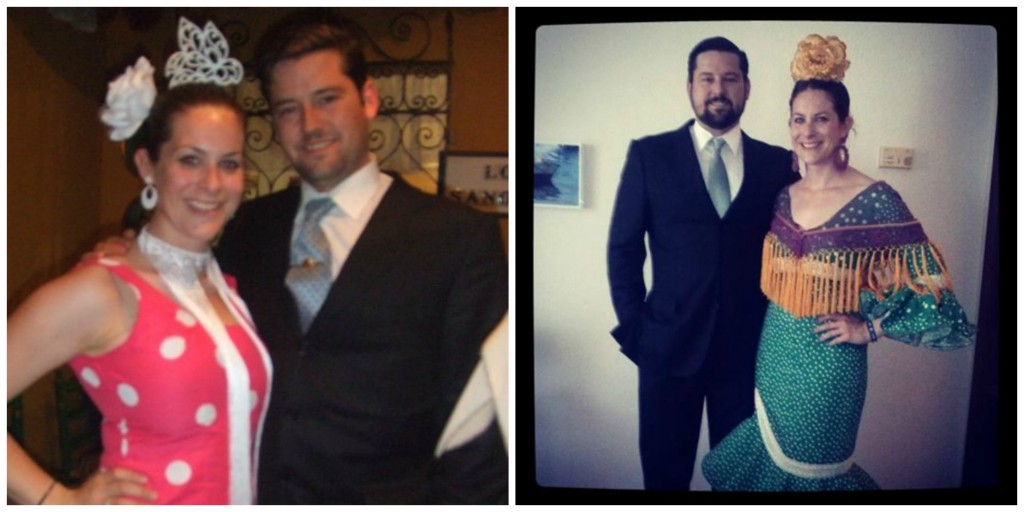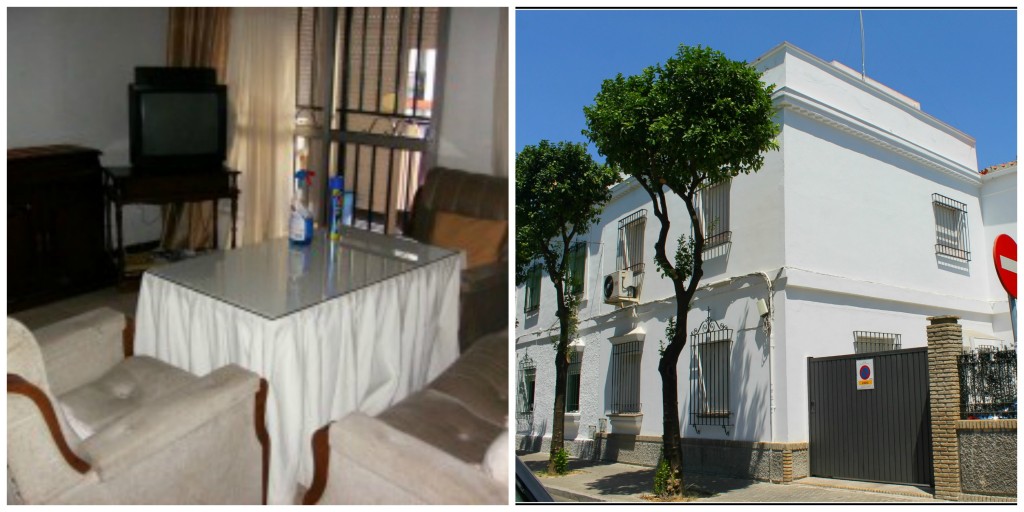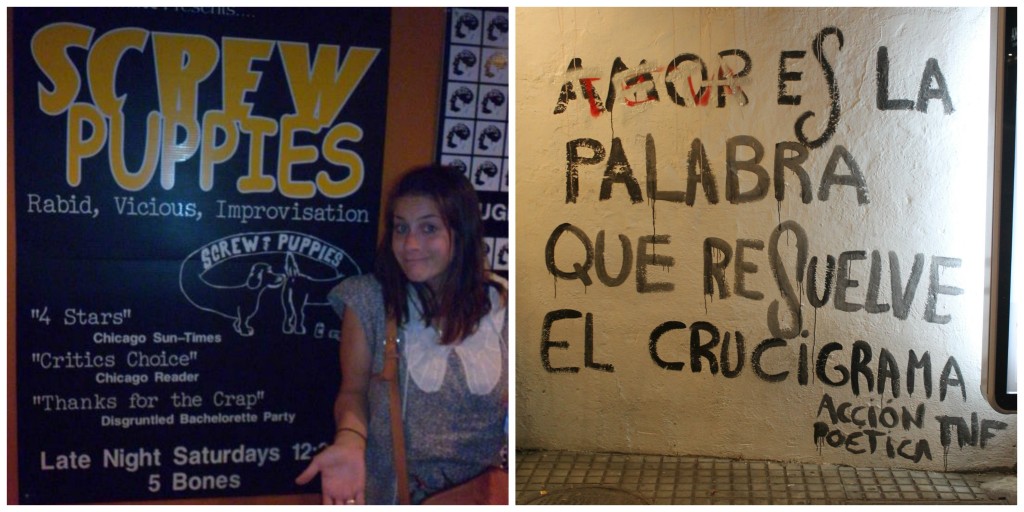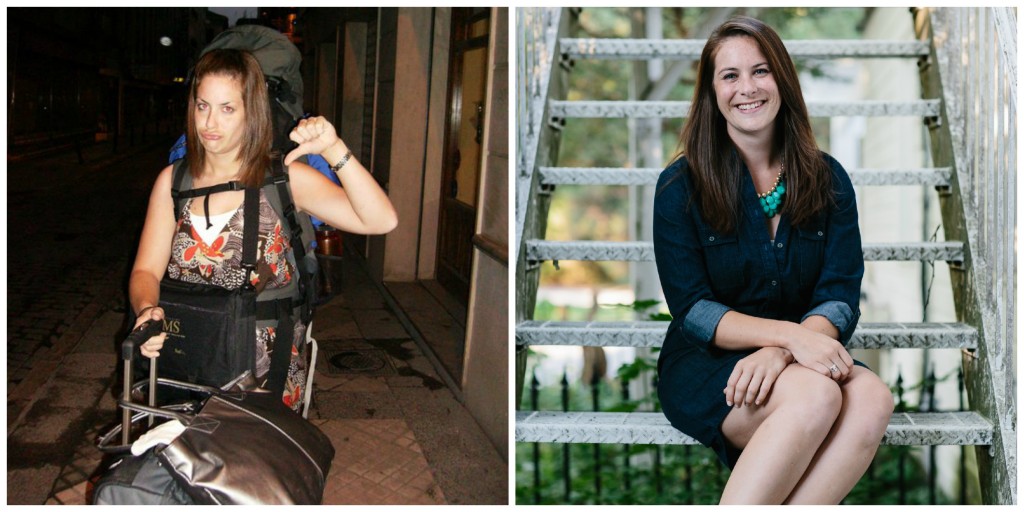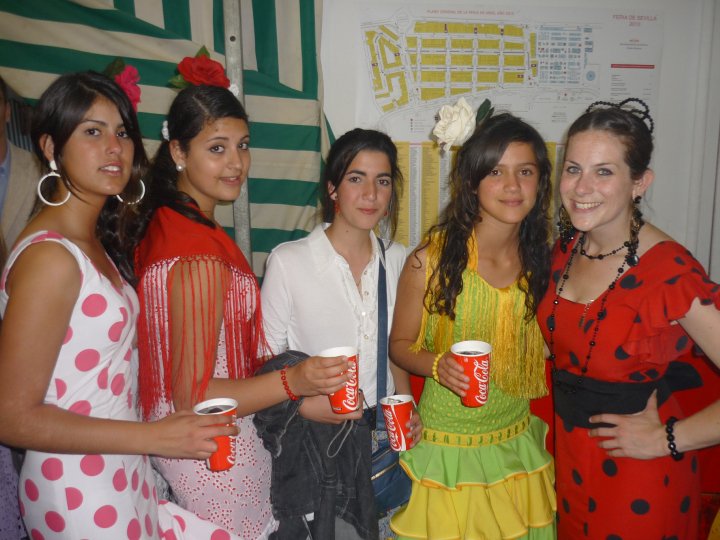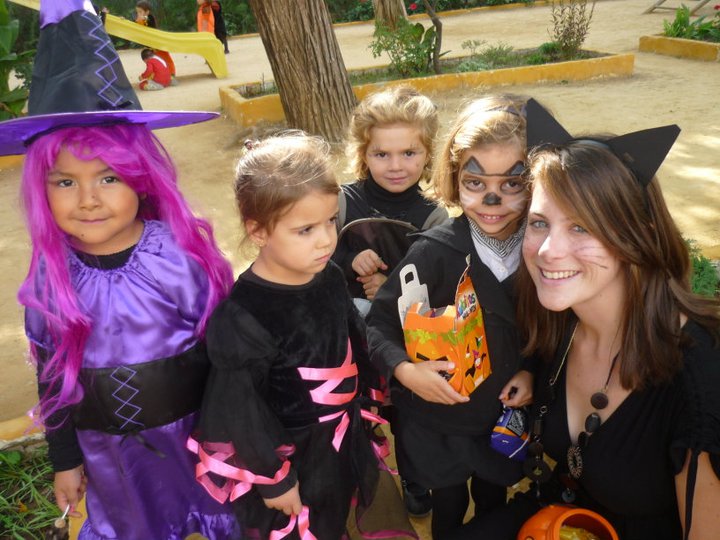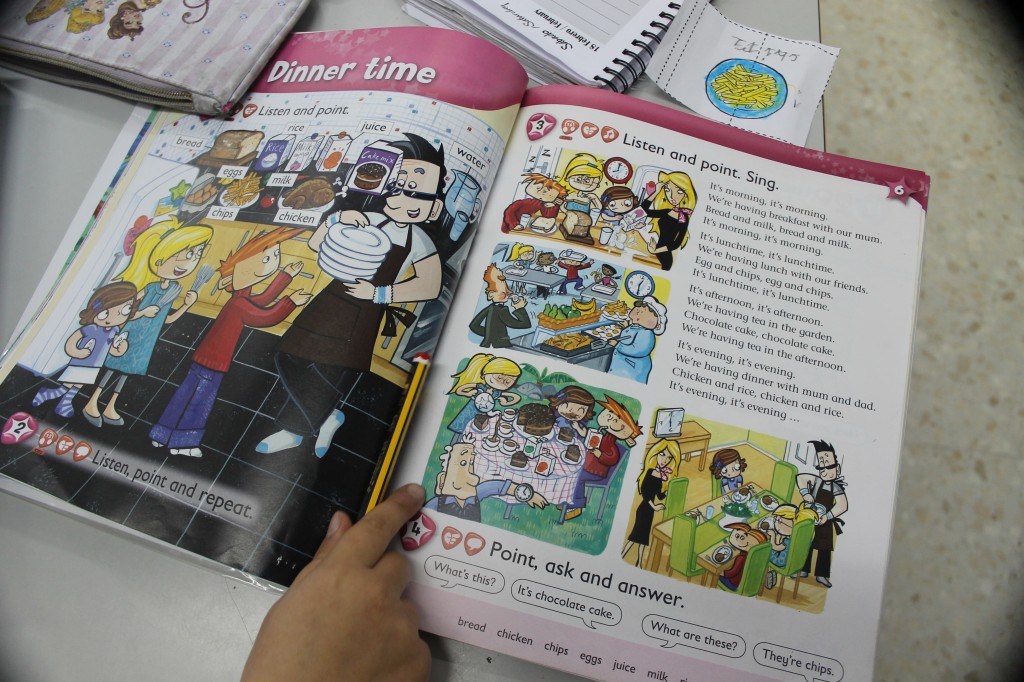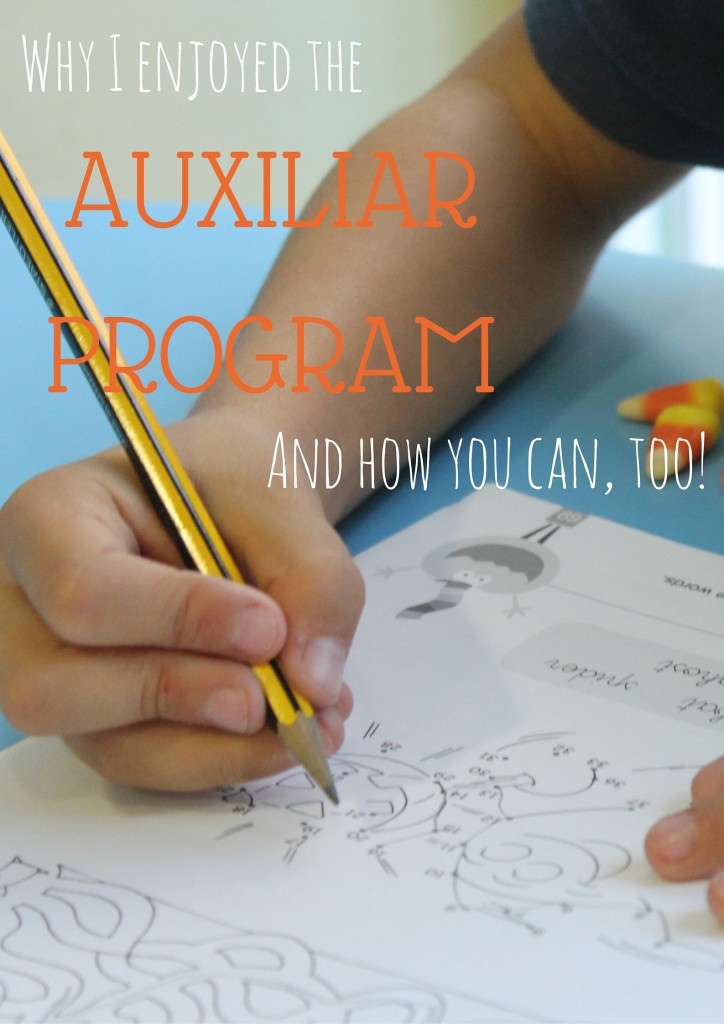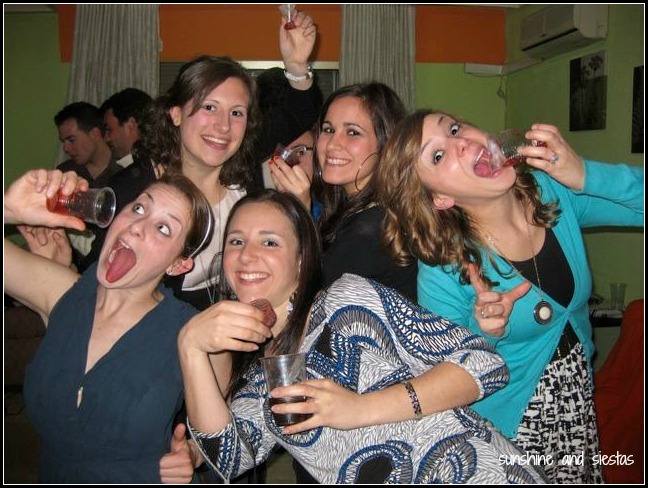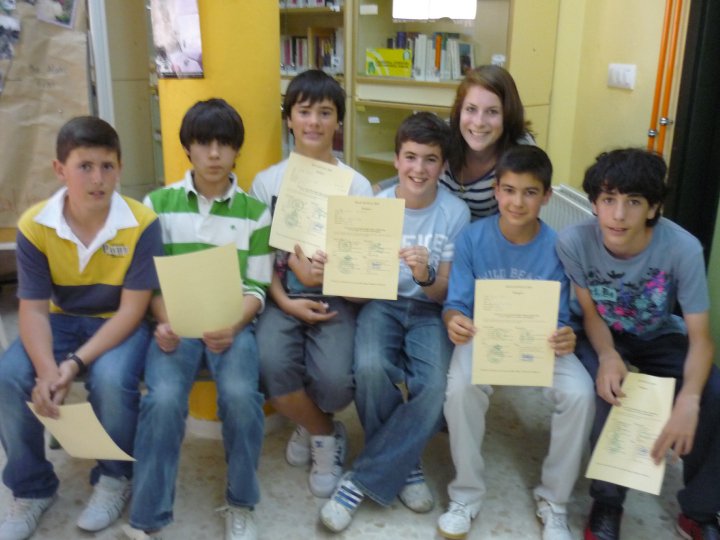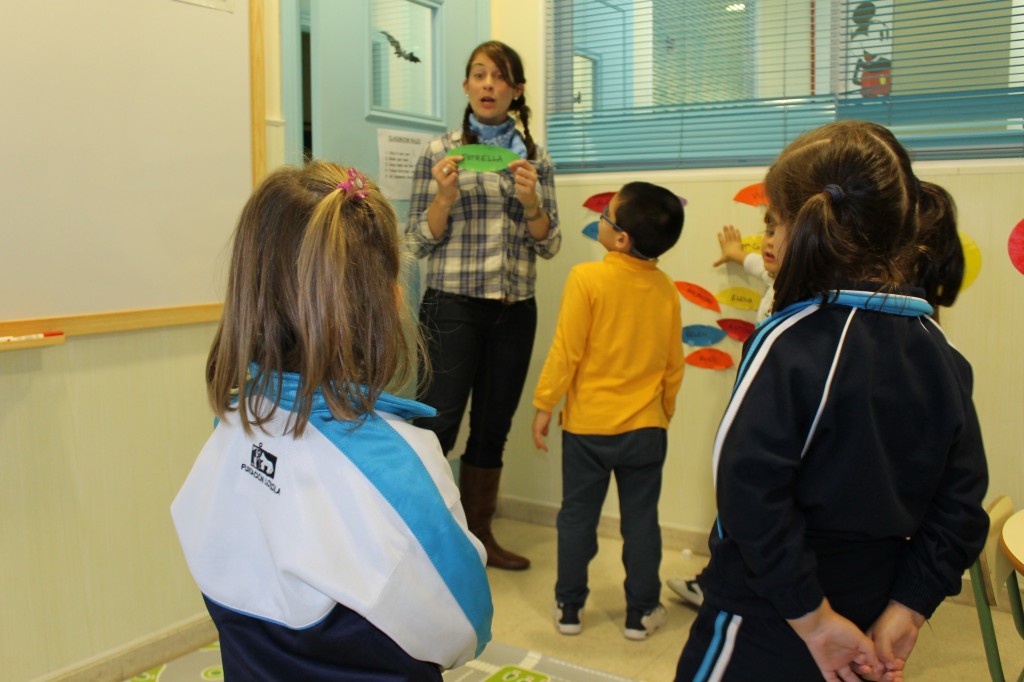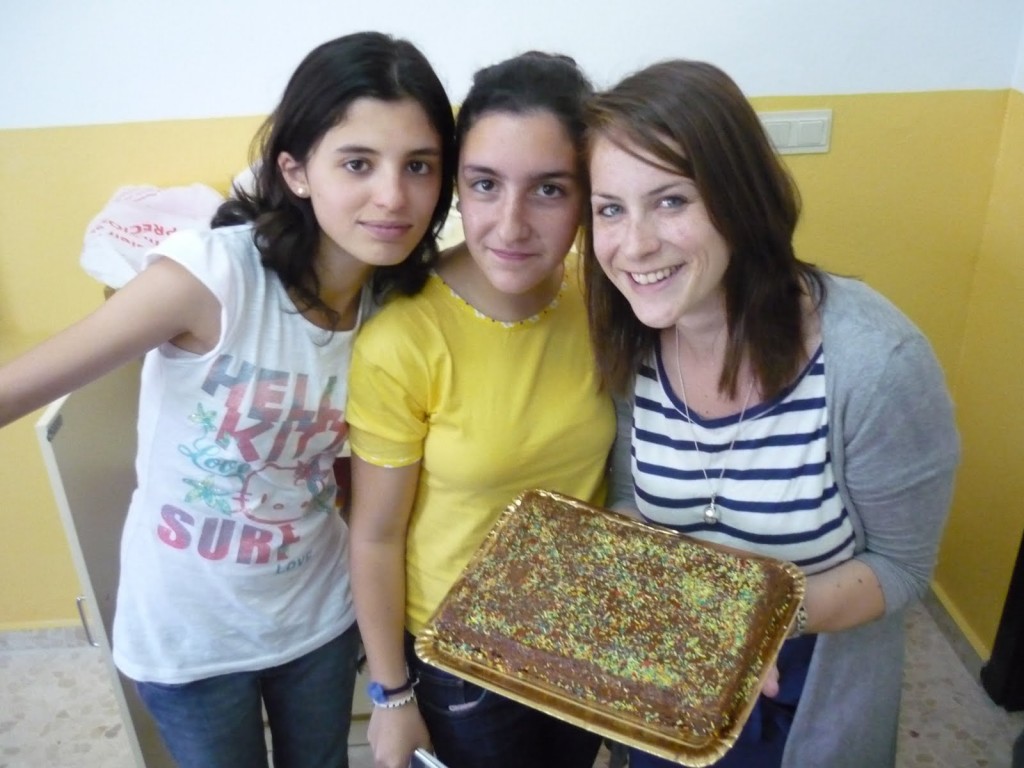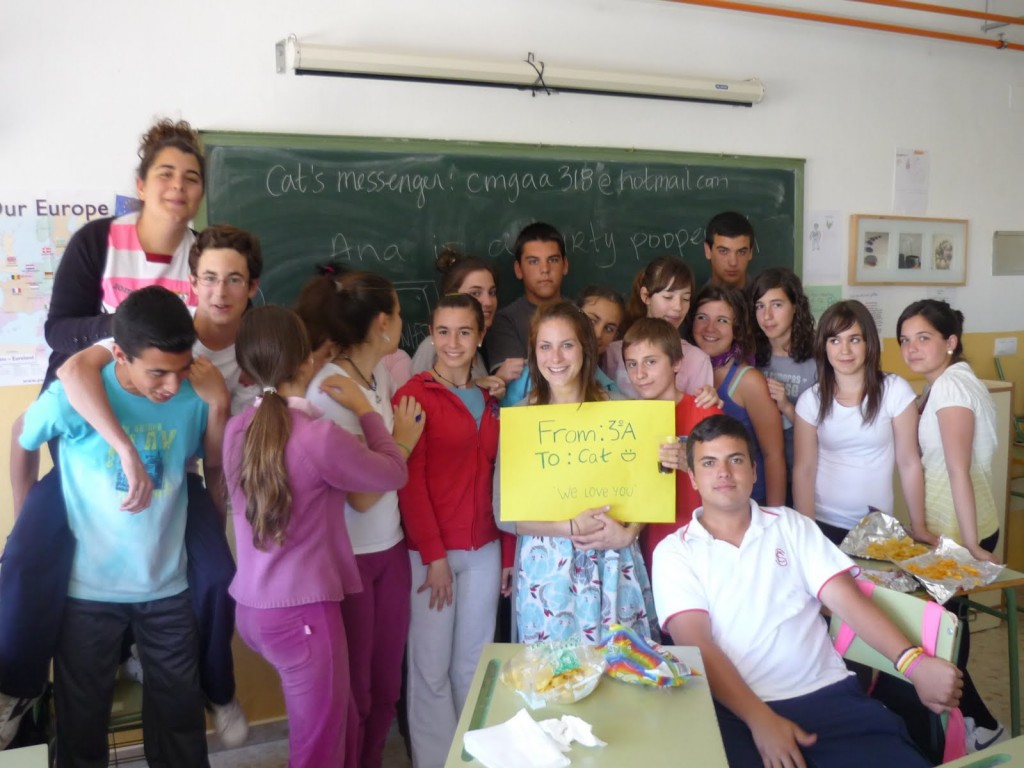I can’t clearly remember my first days in Spain. Between the jet lag, the whirlwind tour of the Iberian Peninsula with my grandmother and the nagging thoughts and regrets, it didn’t fully hit me that I had up and moved to Spain to teach English until nearly three weeks after my plane touched down on September 13th, 2007.
Cue my Jessie Spano moment once Helen was boarded on a plane back to the Motherland.
I was terrified to start a life in Span alone, barely 22 and not proficient in Spanish. Every challenge – from getting my residency card to remembering how to separate the trash – seemed to come with a mountain of self-doubt. Que Dios bendiga my bilingual Spanish roommate and my bilingual coordinator for helping me through those rough first weeks.
My first year in Spain seems like it was both so far in the past and like it was last year. I met Lucía and Valle, old coworkers from Olivares, last week for dinner, and the piropos rolled in – You look more womanly. You and the Novio seem to be a balanced couple. WAIT you and the Novio are still together? And you’re getting married?! And there’s a HOUSE in the mix!?
My, my you’ve come a long way (proof is below, as far as flamenco dresses are concerned).
Seven years is a long time, leches!
WORK then: auxiliar de conversación // now: director of studies
When I first arrived to Seville, I worked at a high school in nearby Olivares as a language assistant. For the first time, I was deviating from my goal of becoming a magazine journalist, and I’d have to do a job I had no experience in. Actually, in having a teacher for a mother, I swore I’d never run a classroom.
My job in Olivares was fun – I was respected by my coworkers and students, and found I was actually considering teaching as a vocation. After three years, I was given the equivalent of a pink slip and thanked for my participation in the auxiliar program.
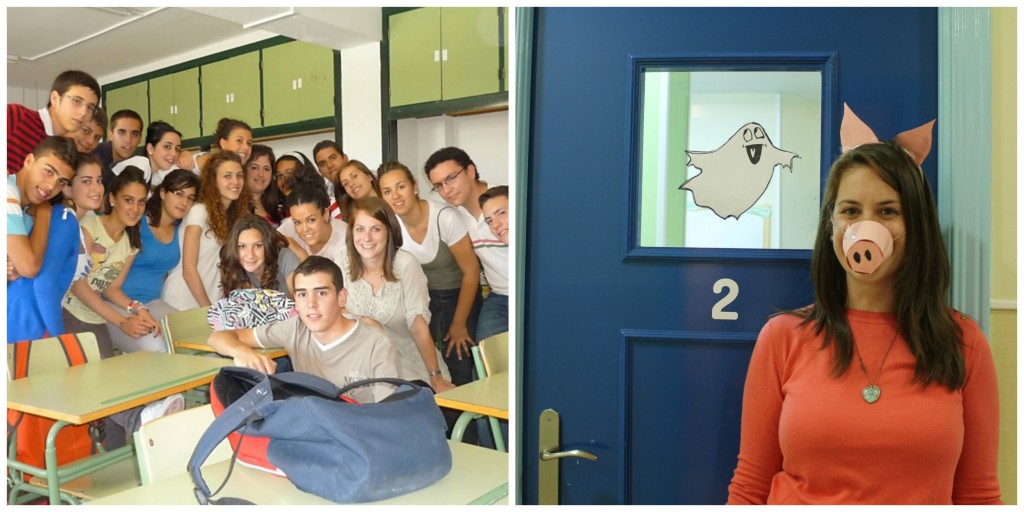
Faced with no job prospects, no magic paperwork solutions and no money in my bank account, I thought I’d be done for in Spain, but both a loophole in Spanish law and a school desperate for a native speaker fell into my lap in one week, thus launching my career in teaching.
The longer I do it, the more I love it. In fact, I’ve turned down a few job offers in favor of my current job, directing the academic side of a small academy in town. I still have contact hours and get my kiddie cuddles fix daily, but not enough to leave my voice ragged and my nerves frayed at the end of the week.
SIDE JOBS then: student tour guide and tutor // now: freelance writing and voiceovers + entrepreneur
I came overly optimistic that my money would stretch forever in Spain – and it did, but only because I saved up a ton of green by working two jobs and cashing in a scholarship. But as someone who despises boredom, I needed to find something to do midday other than siesta.
Doing research for an article about volunteering abroad brought me to We Love Spain, a then baby student tourism company. I began asking questions about what the company did and where the trips took them, and was offered an internship as a PR rep. Let’s be clear – PR like you learn in journalism school doesn’t prepare you for Spanish PR. I spent time passing out flyers and making phone calls, but got to know my city and a lot of people through WLS. We amicably went our separate ways when I realized I wasn’t making enough money to support my travel and tapas habits.
I tutored up until last year as a way to make some quick money, but as my professional network grows, it’s hard to find time to commit to biking around Seville and giving homework help.
Nowadays, I fill my mornings with more than sleeping until a late hour and lazing around the house (me and lazy can only be used together if it’s post-work week, and even then, it’s a stretch). I do freelance work in both writing and translating, record children’s stories for iPads and tablets, and am getting a business up and running, COMO Consulting Spain.
Even during my ‘summer vacation’ I found time to plan half a wedding and co-author an eBook about Moving to Spain.
Hustlers gonna hustle, after all.
LIVING SITUATION then: shared flat in Triana // now: homeowner in Triana
The 631€ I earned as a language assistant my first year didn’t go too far each month, and paying rent was my first order of business with every paycheck I got. Turning down a room with a balcony right under the shadow of the Giralda when I first arrived, I ended up in a shared flat in Triana with two other girls – a Spaniard and a German.
Living in shared accommodation is one thing, but when you add in another couple of languages and cultures, things can get complicated. I thankfully escaped to the Novio’s nearly every night before moving all of my stuff and my padrón to his house. Four years later, I moved back to Triana with my name on the deed and way poorer.
SOCIAL LIFE then: bars, discos and botellón // now: bottles of wine and the occasional gin tonic
Working twelve hours a week allowed me to explore other interests, like a flamenco class and loads of travel, as well as left me with two new hobbies: drinking beer and eating tapas. But that didn’t come easily – I actually had many lonely weeks where I’d do little more but work, sleep and walk around the city to stave off boredom.
Once I did make friends, though, life become a non-stop, tinto-de-verano-infused party. My first few years in Spain may have been chaotic, but they were a lot of fun!
Alcohol – particularly beer and wine – is present at meals, and it’s perfectly acceptable to have beer with lunch before returning to work. When I studied abroad at 19, I’d have to beg my host family not to top off my glass with wine every night at dinner, or remind them that I didn’t want Bailey’s in my coffee. But as soon as I met the Novio, he’d order me a beer with lunch and dinner, despite my request for water.
Now, most of my social plans are earlier in the evening, involve far less botellóns and garrafón, and leave me feeling better the next day. I sometimes get nostalgic for those nights that ended with churros at 7am, and then remember that I have bills and can’t drink like a college kid anymore. I still maintain my love for beer, but hearty reds or a crisp gin and tonic are my drinks of choice when I go out with friends.
SPANISH SKILLS then: poquísimo // now: C1+
To think that I considered myself proficient in Spanish when I moved to Seville. I couldn’t understand the Andalusian accent, which is riddled with idioms and missing several syllables, despite studying abroad in the cradle of modern Spanish. My roommates and I only spoke to one another in English, and I was so overcome by the Novio’s ability to speak three foreign languages, that I sheepishly admitted to my parents that I’d let myself down on the Spanish front when they came to visit at Christmas.
I buckled down and began working towards fluency. I made all of the mistakes a novice language learning makes, including have to put my foot in my mouth on numerous occasions, but it has stuck. In November 2011, I sat the DELE Spanish exam, passing the C1, or Advanced, exam. I then one-upped myself by doing a master’s entirely in Spanish the following year.
I’d say I now speak an even amount of English and Spanish because of my line of work and my choice to have English-speaking friends.
FUTURE PLANS then: learn Spanish and travel a whole bunch // get married, decorate a house and start a bilingual family
A college friend put it best this summer when the Novio and I celebrated our engagement. He told me all of our friends thought I was insane for passing up a job at a news radio station in Chicago to go to Spain to teach, and that I’d made it work. I can clearly remember the stab of regret that I had when I boarded the plane, the moments of confusion as I navigated being an adult and doing so in Spanish, of missing home and friends and hot dogs and baseball.
But here I am, seven years later, grinning as I remember how different my life was, but that I grabbed life by the horns and made Seville my own. I’d say I’d surprised myself, but I would expect nothing less.
Now that I’m planning a bilingual wedding, dealing with the woes of homeownership and starting a company, I realize my goals are still in line with those I had long before I decided to move to Spain. In the end, my life isn’t so radically different from 2007, just more polished and mature.
Reflections of My Years in Spain – Año Cuatro / Cinco / Seis / Making the choice to live abroad

